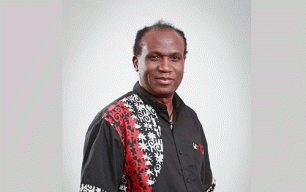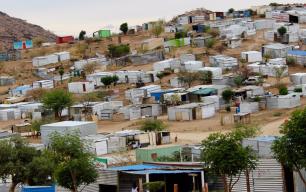House auctions short-change families

By Patience Makwele
Two Windhoek-based households have raised concerns after their houses were repossessed by the commercial banks. One led by a defiant pensioner, the other fractured by loss, are sounding alarms over what they described as a pattern of injustice, corruption and institutional failure in the country’s financial and legal systems. Their separate but strikingly similar cases involve major banks, government agencies and the courts, raising haunting questions about who the system truly serves.
Since independence, repossessions have been a painful reality. Between 1990 and 2014, nearly 15,000 homes were repossessed across Namibia showing that today’s struggles are part of a much deeper national crisis.
The first case involves a 69-year-old Windhoek resident, Fredrich Schroeder, who has allegedly spent more than a decade in what he calls a relentless fight against “a conspiracy of silence” surrounding the 2013 auction of his home. He alleges that the repossession was based on a fraudulent High Court ruling, with “fake deeds” and unlawful actions by bank officials, the Registrar of Deeds, the City of Windhoek and the judiciary itself.
In an affidavit seen by Confidente, Schroeder accuses FNB Namibia Holdings of fraud and claims a 2011 judgment by Acting Judge Botes, the foundation of the case against him was “ab initio” flawed and invalid from the start.
“My fundamental human rights and freedoms have been unnecessarily violated,” Schroeder said. “There was no lawful judgment, no lawful sale and no lawful transfer of title.”
At the heart of his claims is the assertion that his property, registered as Erf 1520 and Erf 1957, was never lawfully sold and that even the subdivision and auction were done under misrepresentation. However, documents presented to Confidente show that both the Bank of Namibia (BoN) and the Office of the Ombudsman pushed back, telling Schroeder they are legally barred from interfering in matters decided by the courts. The Ombudsman’s 2018 report stated that Schroeder’s property was lawfully subdivided and consolidated and found no evidence of fraud by FNB in obtaining the sale-in-execution order. The National Assembly’s Standing Committee on Constitutional and Legal Affairs also closed the matter in 2024, emphasizing that Parliament cannot interfere with judicial matters.
Still, Schroeder remains adamant. “This is bigger than me. It’s a system that’s failing its people,” he told Confidente, adding that his formal complaints to the Prosecutor General and Judicial Service Commission remain unresolved. Confidente tried getting ahold of FNB Namibia Holdings on several occasions; however, their office numbers were unreachable.
The City of Windhoek, through Communications Officer Lydia Amutenya, confirmed that a Compliance Certificate was issued in 2013. “Yes. The Compliance Certificate for the property previously registered under Mr. F.W. Schroeder was officially issued to Ms. Desiree Louw on 18 June 2013,” Amutenya said.
She further noted that while a site inspection later confirmed structural amendments in line with Building Permit No. 2431/2016, issued in April 2017, these came years after the 2013 Memorandum of Agreement (MOA) between the Deputy Sheriff and Louw. “As these amendments occurred after the 2013 MOA, it could not be conclusively determined whether the original conditions and requirements stipulated in the MOA were met at the time,” she added.
Amutenya clarified that the transfer of ownership was processed and approved through the Deeds Office, “as a Compliance Certificate had, in fact, been issued.”
Schroeder’s fight comes as around 30 homes in Windhoek are currently listed for auction, with affected families in areas like Wanaheda, Rocky Crest, Khomasdal and Otjomuise. Meanwhile, in a separate case of heartbreak and loss, an estranged Windhoek family lost their ancestral home on 21 July 2025 after Standard Bank auctioned the property under what one family member described as “dubious and unjust circumstances.”
Speaking on condition of anonymity, the family member told Confidente they had written repeated appeals to Standard Bank pleading to be given a chance to pay off the debt in instalments and even reached out to the Office of the Prime Minister (OPM), pleading for intervention all to no avail. Email screenshots presented to this newspaper showed multiple appeals sent between May and June 2025 asking OPM to investigate the mortgage dispute and stop the auction.
“It is more than a house it’s where our parents raised us. Now it’s gone,” the relative said.
The home, which was initially fully paid off, was allegedly re-mortgaged after a relative who once worked at SME Bank took out a loan using the house as collateral. However, after four months into the job, SME Bank collapsed and the borrower lost his employment. Repayments ceased, causing the debt to balloon to a staggering N$1.6 million.
The family claims they proposed a payment plan to Standard Bank to pay off the house debt in monthly instalments of either the original N$12,000 or N$15,000 collectively. However, the bank allegedly insisted on a monthly repayment of N$22,700, which the family could not afford. “We tried everything. But their actions were driven by impatience not justice,” the family wrote in an email to OPM. Adding salt to their wounds is the claim that the family also lost two ancestral homes in their village of Onankali after an internal family dispute that left their properties vulnerable to repossession by the traditional authority. “It created division and left our ancestral home vulnerable. That too was repossessed. Now this,” the relative said.
Making matters worse, the family alleges that the auction process was misrepresented, including inaccurate descriptions of the property’s true layout and value. “The bank consultant misled potential buyers,” they claimed. The property reportedly included two dwellings and various outside structures that were not reflected in the auction documents — a detail confirmed by Confidente on the day the family lost their ownership to the bank.
Now the family faces imminent eviction with just one month to vacate the home. “We have nowhere to go. Windhoek housing is outrageous. This is a reflection of how ordinary citizens are being failed,” stressed one of the victims. Their struggle echoes the broader financial pressures faced nationwide. By the end of 2021, banks held N$179 million in repossessed assets—an 87 percent increase from the previous year—while non-performing loans reached N$6.7 billion, about 6.7 percent of all banking credit. Household debt has since risen to nearly N$69 billion, with mortgage balances making up N$45.7 billion.
Confidente reached out to Standard Bank Namibia and the consultant who allegedly handled the auction and was referred questions to the marketing department. However, efforts to get ahold of them were unsuccessful as their landlines went unanswered.
Calls for reform have grown louder. Yet, amendments to the Magistrates’ Court Act (2023) and the High Court Act (2024)—intended to place stronger judicial oversight on repossessions of primary homes—remain stalled. Meanwhile, the average cost of a Namibian house has soared by 1,258 percent since 1990, leaving many families unable to keep up with mortgages in a market that appears stacked against them.
- 216 views










Comments